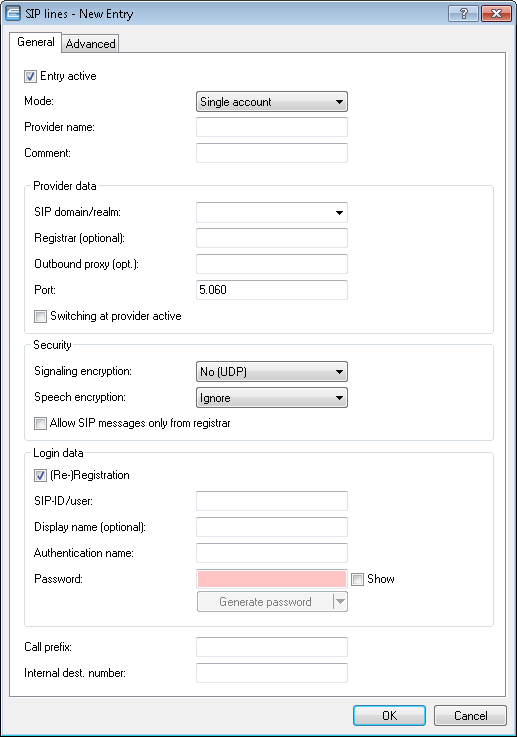As of version 9.20, LCOS supports Voice over Secure IP (VoSIP). This function enables you to encrypt the signaling and voice data. VoSIP can be operated on the following devices:
- LANCOM 1783 / 1784
- Any LANCOM with the All-IP option

- Signaling encryption
-
This setting determines the protocol used for signaling encryption (SIP/SIPS) for communications with the provider.
Signaling encryption UDP All SIP packets are transmitted connectionless. Most providers support this setting. TCP All SIP packets are transmitted connection-oriented. The device establishes a TCP connection to the provider and maintains it for as long as it stays registered. Specialized providers, such as the providers of SIP trunks, support or force this setting. TLS Transmission is the same as with TCP, but all of the SIP packets are encrypted all the way to the provider. - Speech encryption
- This setting determines if and how the speech data (RTP/SRTP) is encrypted when communicating with the provider.
Speech encryption Reject Encryption is not available for outgoing calls. Incoming calls with an encryption proposal are rejected. The speech channel is not encrypted. Ignore Encryption is not available for outgoing calls. Incoming calls with an encryption proposal are accepted. The speech channel is not encrypted. Preferred Encryption is offered for outgoing calls. Incoming calls without an encryption proposal are accepted. The speech channel is only encrypted if the remote peer also supports encryption. Force Encryption is offered for outgoing calls. Incoming calls without an encryption proposal are rejected. The speech channel is either encrypted or is not established. Note: If you require the encrypted transmission of speech data, the signaling must also use an encrypted channel. Please note that the use of SRTP is no guarantee of end-to-end encryption.